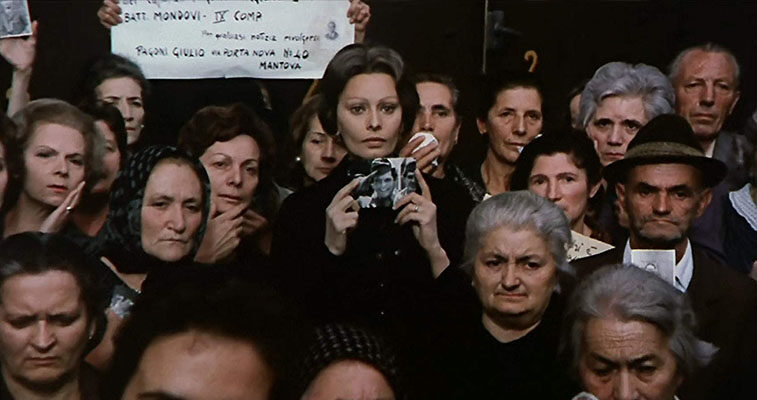[5]
Sophia Loren stars in the final film from director Vittorio de Sica, about an Italian woman despondently searching for her soldier husband (Marcello Mastroianni) in the fallout of World War II. Unable to learn from the government whether he’s even dead or alive, she sets out to the battlefront once the war is over. And what can I say without giving away the second half of the plot? How about I quote a certain Stephen King horror flick: “Sometimes dead is better.”
Sunflower starts off strong, with about a half-hour of Loren and Mastroianni falling quickly but madly in love, getting married, and trying to dodge the draft. Loren and Mastroianni, having made nine films together prior to this one, have an easy and powerful chemistry. De Sica lets them own the screen, with nothing but their personalities carrying the film through it’s relatively plotless opening act.
But once Mastroianni goes to war, Sunflower turns into a terribly maudlin, melodramatic affair (a stark contrast to De Sica’s lauded neorealist Bicycle Thieves). Loren spends the last half of the film crying, and the screenplay introduces more soap opera elements as it veers into an inevitably bittersweet ending. If you like melodrama, you may enjoy this tortured romance story. The cinematography is often sumptuous, especially during Loren’s visit to a mammoth soldier burial ground. (There’s also a complex camera movement around a moving truck that I can’t imagine how they executed.) But for me, the magic ends when Sophia and Marcello stop sharing scenes together.
Oscar Nomination: Best Score (Henry Mancini)

